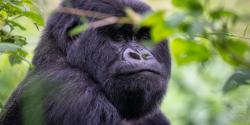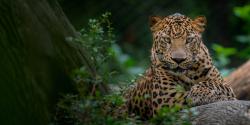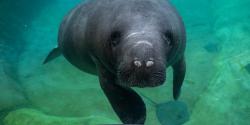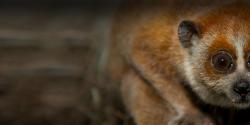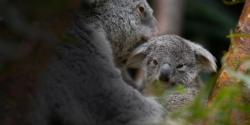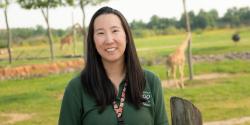For nearly a century, the Columbus Zoo and Aquarium has been a cornerstone of our community, inspiring visitors with its dedication to wildlife and conservation. With nearly two million visitors each year, the Zoo is uniquely positioned to catalyze environmental change. That’s why we’re thrilled to unveil our first-ever Sustainability Strategy, a roadmap to ensure a greener future for our planet—and our backyard.
Ready to see how we’re making a difference? Let’s dive into ten big ways the Zoo is leading the charge in sustainability.
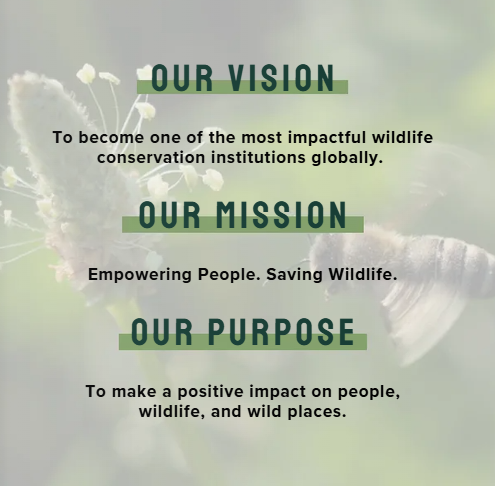
A Brighter Future: How Wildlights Went Green
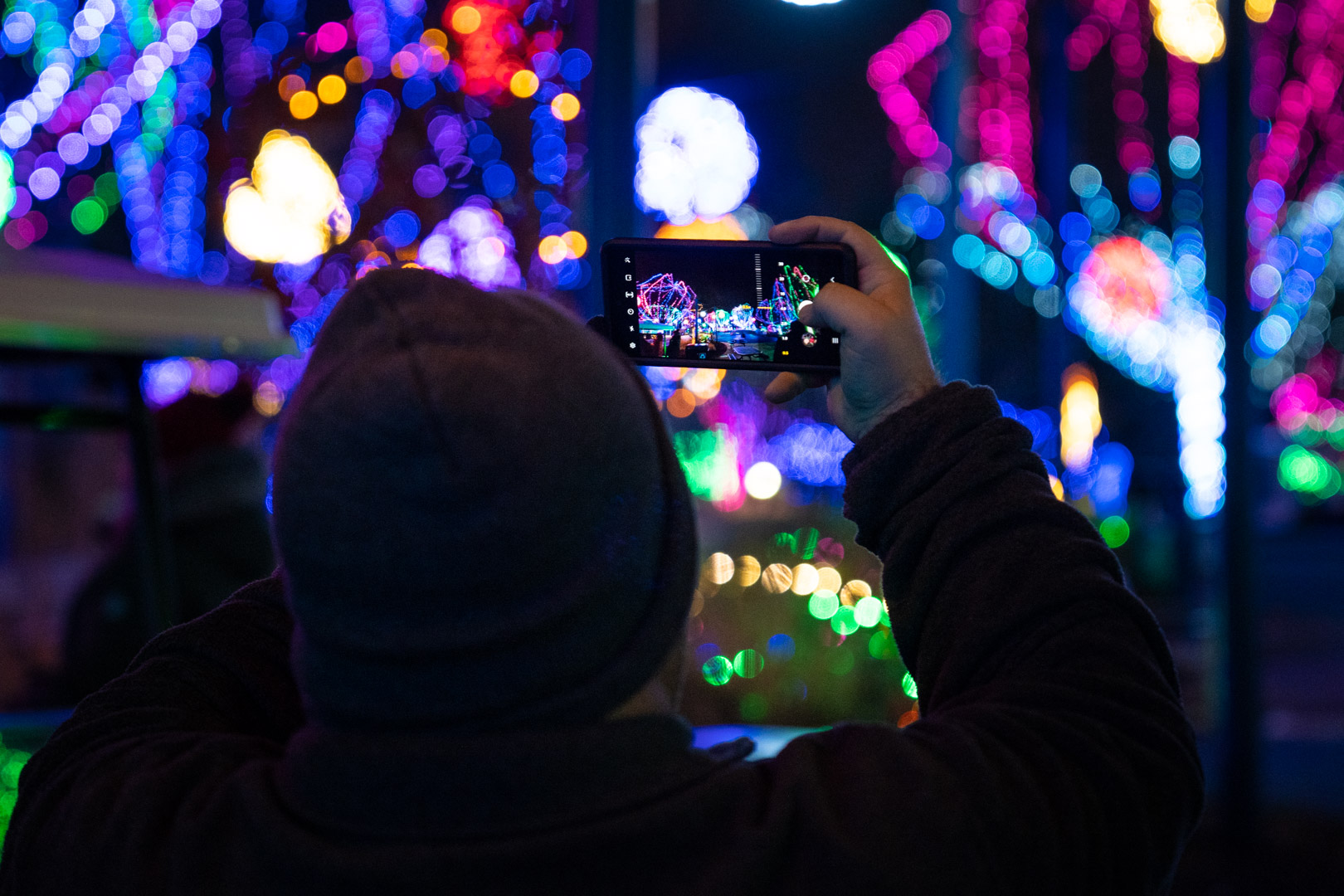
Did you know Wildlights at the Columbus Zoo has been glowing sustainably since 2009? By transitioning over three million holiday lights to energy-efficient LEDs, we’ve reduced electricity consumption by 85%. Even better? We recycle non-functional light strands to recover materials. Talk about making the holidays merry and bright—for the planet!
Driving Change: Electric Vehicles Powering the Zoo
From guest parking to Zoo operations, we’re embracing electric power. Since 2019, we’ve installed EV chargers and added electric vehicles to our fleet. In 2024, the purchase of three all-electric vans further reduced our carbon footprint while keeping us on the move.
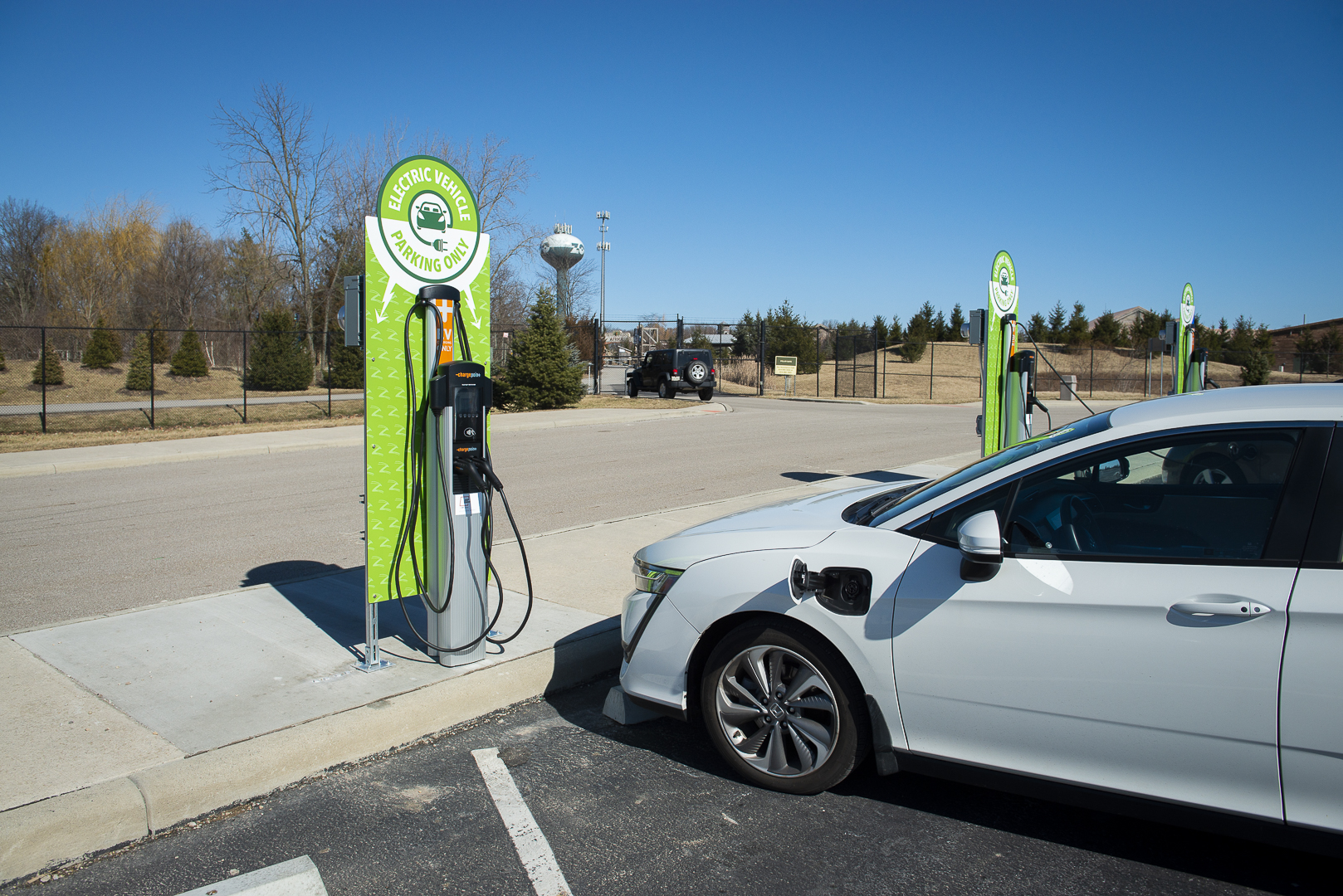
Zero-Emission Adventures: The Electric Train
All aboard the future! The Columbus Zoo Train now runs on a fully electric engine, offering guests a zero-emission ride with up to 52 passengers. It’s a fun, sustainable way to tour the North America Trek region of the Zoo.
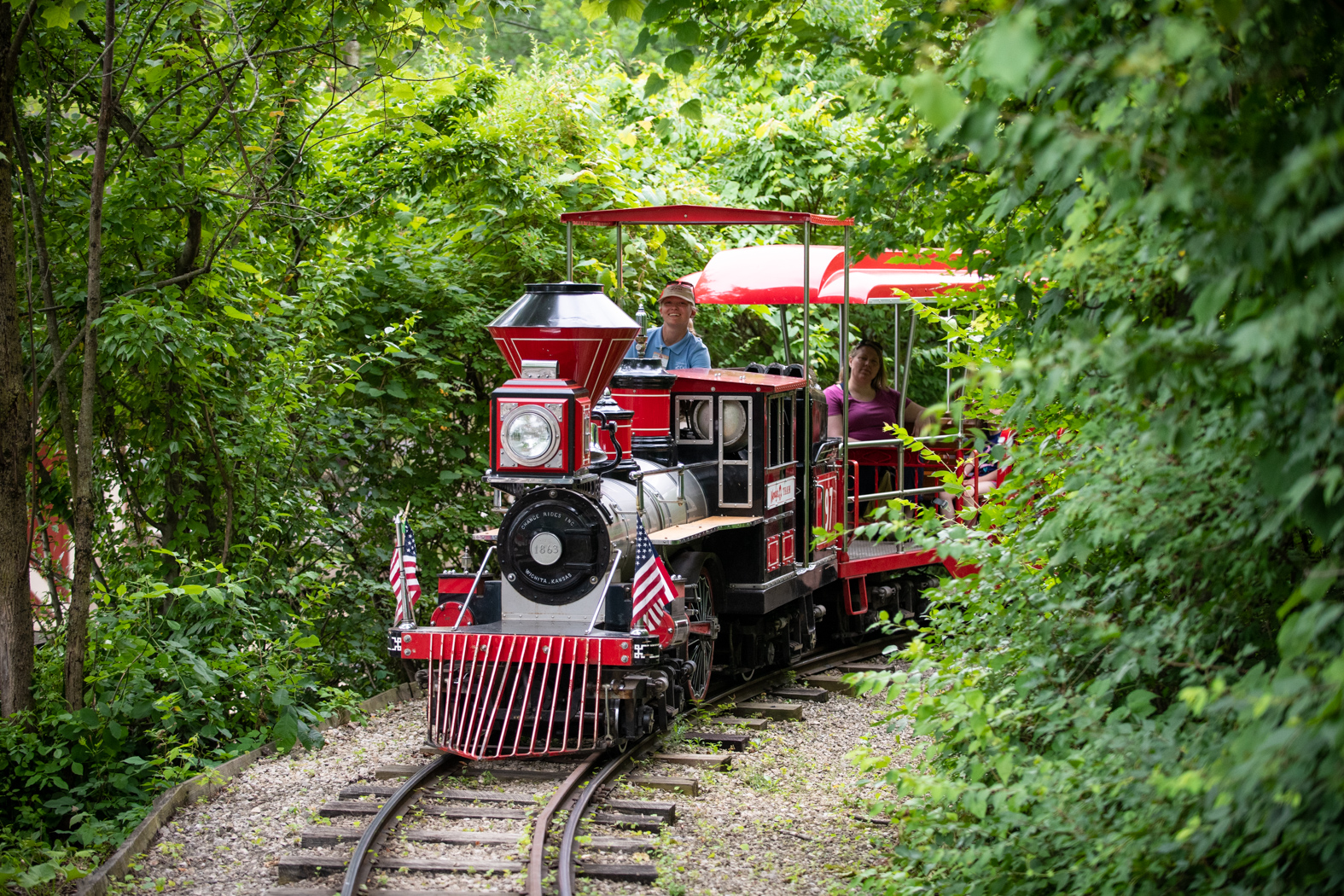
Columbus Zoo Train at the Columbus Zoo
Powering Up: Rooftop Solar Arrays
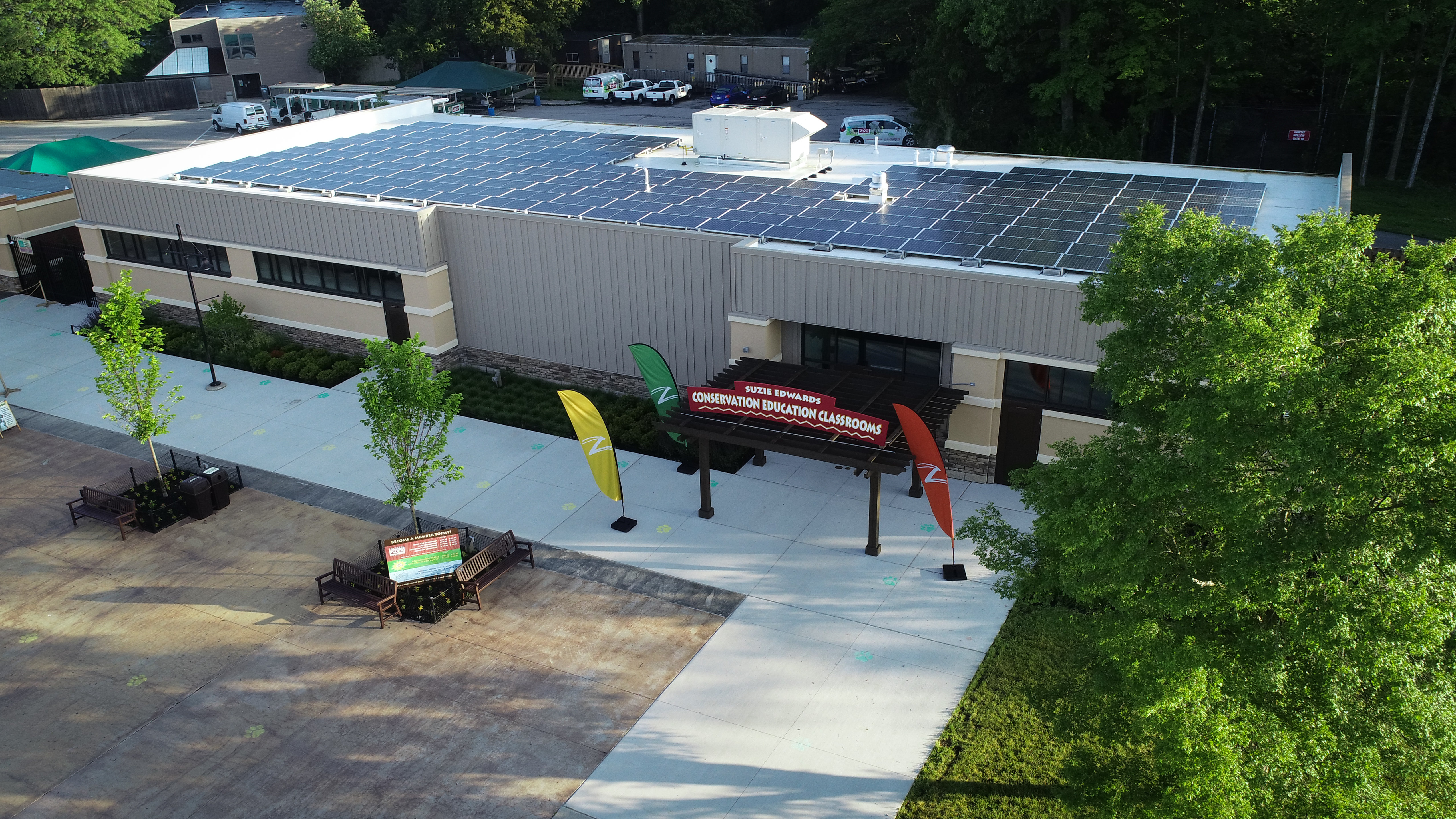
The Suzie Edwards Conservation Education Classroom building generates 74.16 MWh of electricity each year thanks to 165 solar panels. That’s like driving 132,595 miles—or powering nine homes—for an entire year!
Trash Talk: Diverting Waste Like Pros
In 2023, the Zoo achieved a diversion rate of 79.54%, well above the national average of 32%. This means most of our waste is recycled, composted, or reused instead of heading to landfills.
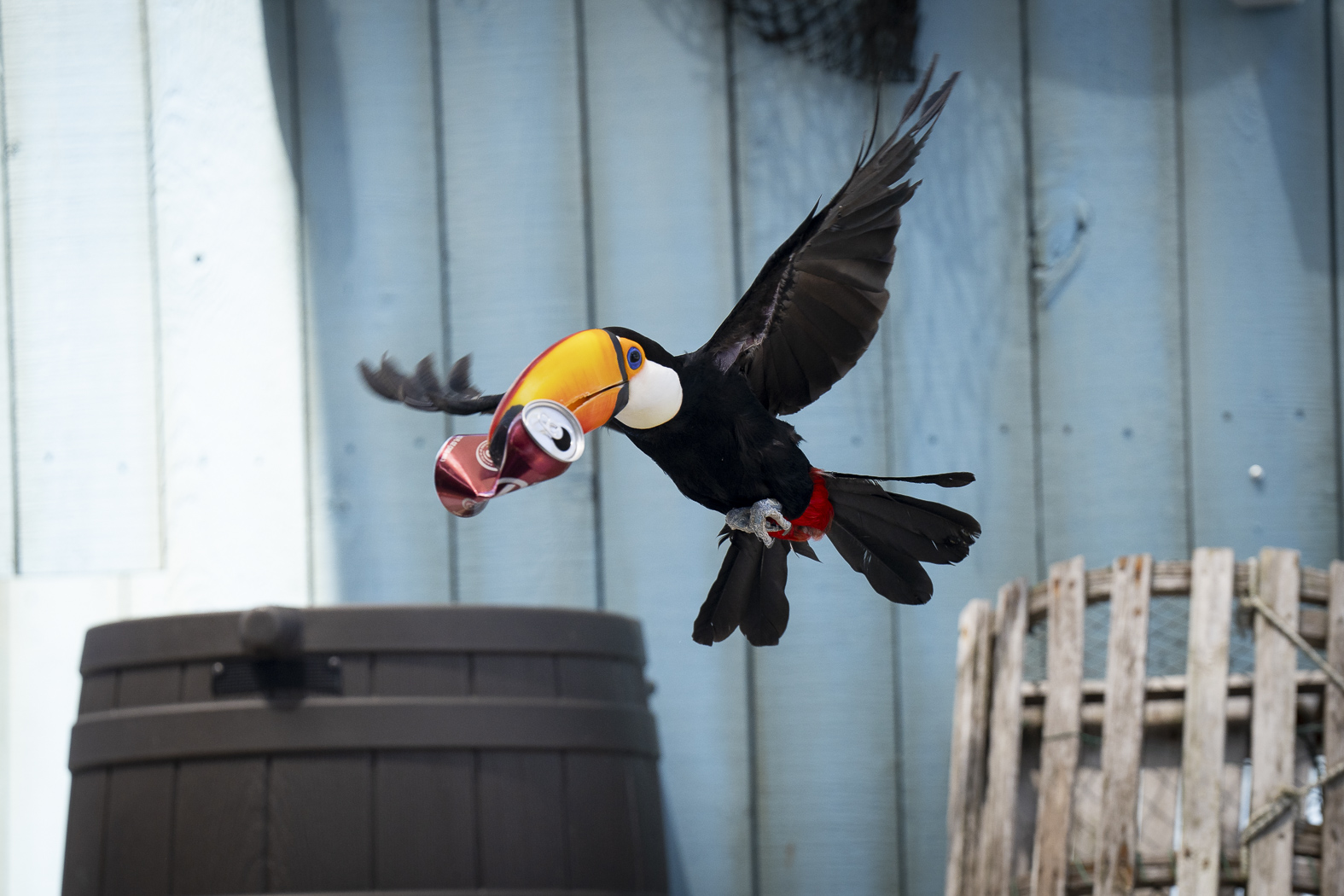
Signs of Change: Creative Recycling in Action
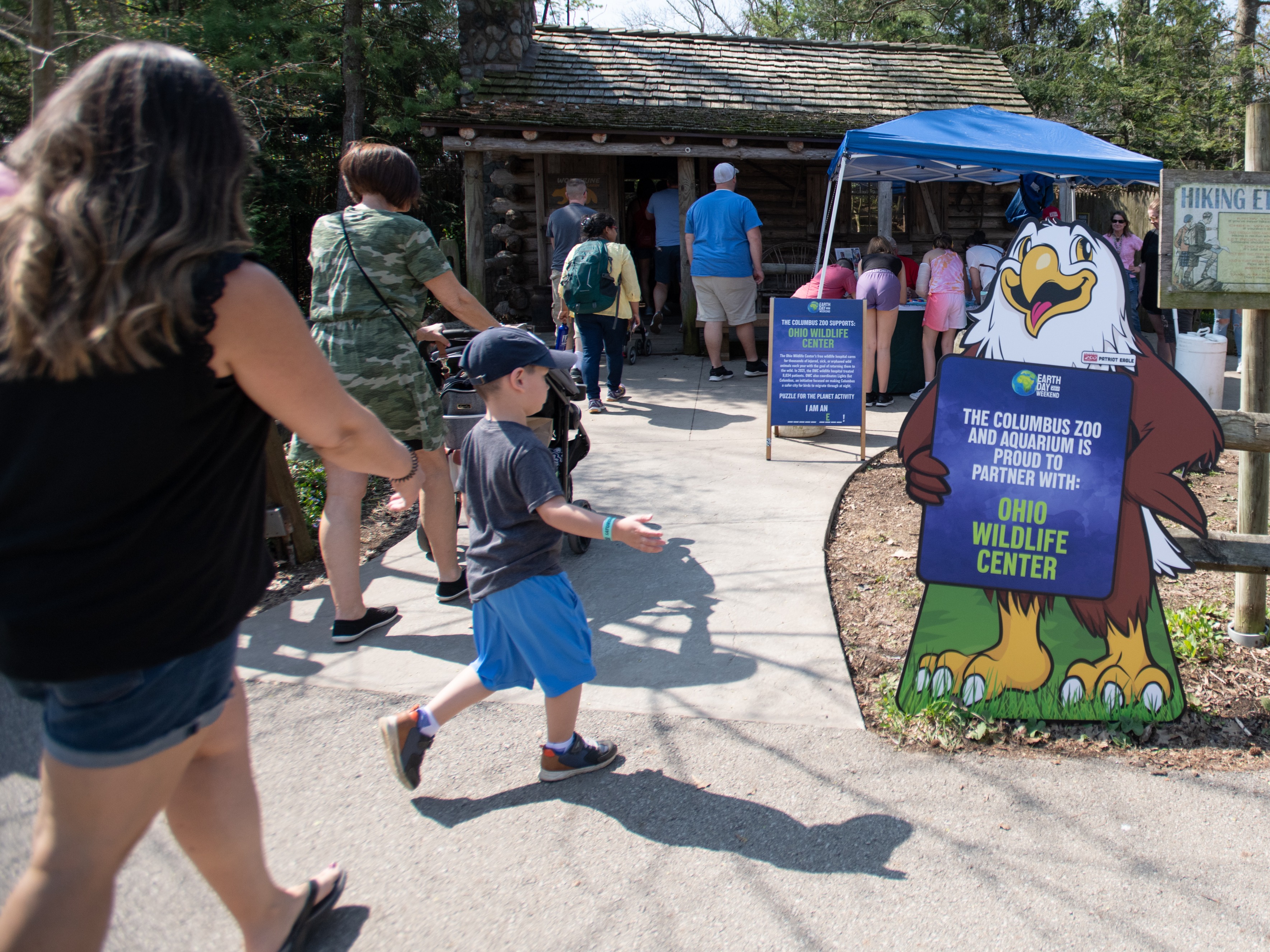
Old event signage finds new life at the Zoo! Our Events & Promotions team previously used various materials for event signage, many of which are difficult to recycle and often end up in landfills. Now, these signs are repurposed into hammocks for orangutans, and once the animal care team no longer needs them, they are converted into reusable bags, available for purchase at the Zoo Marketplace gift shop.
A New Purpose: Recycling Uniforms and Textiles
Through partnerships with Second Chances Thrift Store and Goodwill, more than 1,000 pounds of old employee uniforms have been recycled into towels, extending their usefulness and keeping textiles out of landfills.
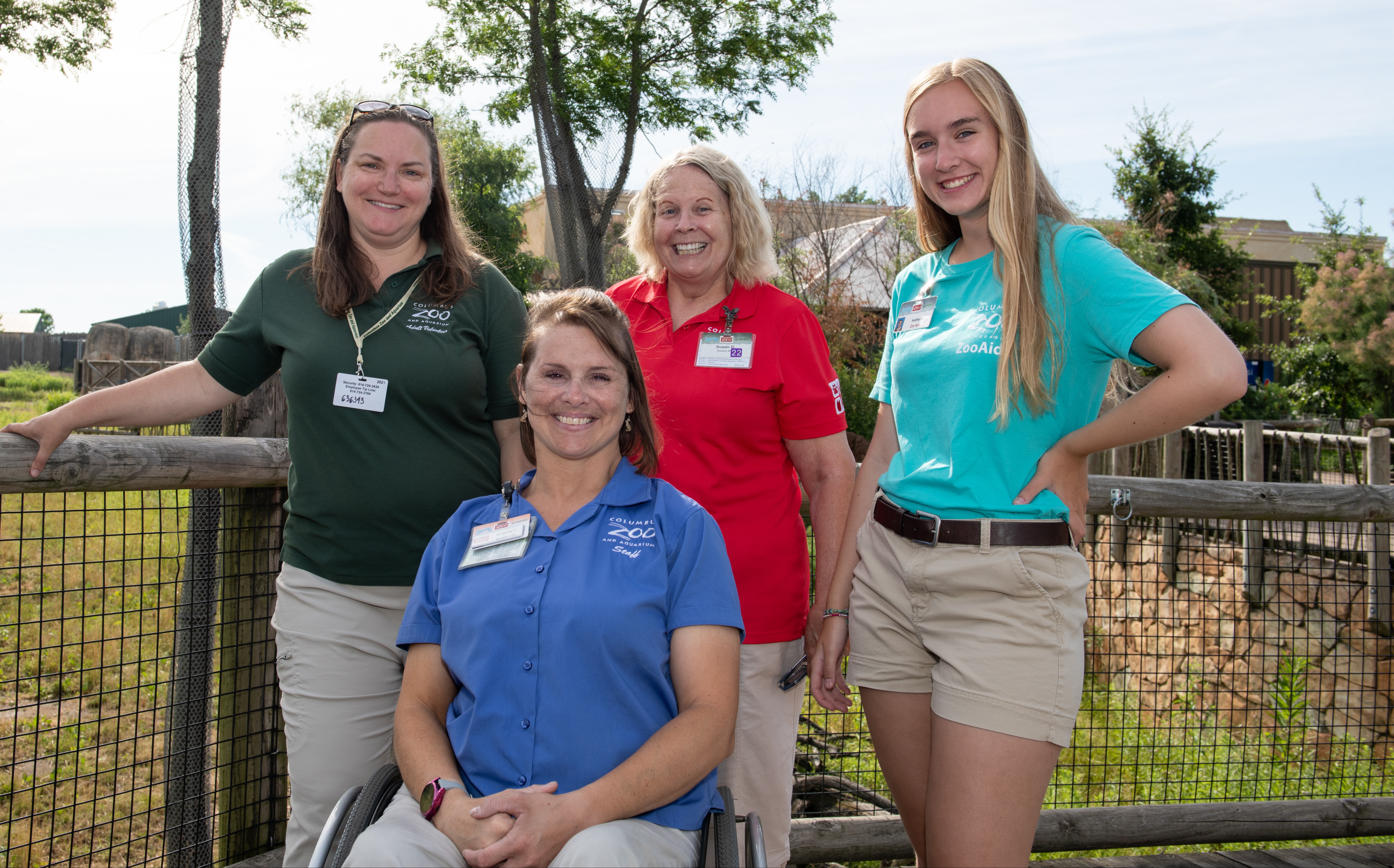
A Better Sip: Aluminum Cups for Guests
Say goodbye to single-use plastic! In 2021, the Zoo became the first to offer aluminum cups as an alternative to single use plastic cups at select beverage locations, reducing on-site plastic usage. Guests can take the cups home as souvenirs, reuse them, or recycle them after their initial use.
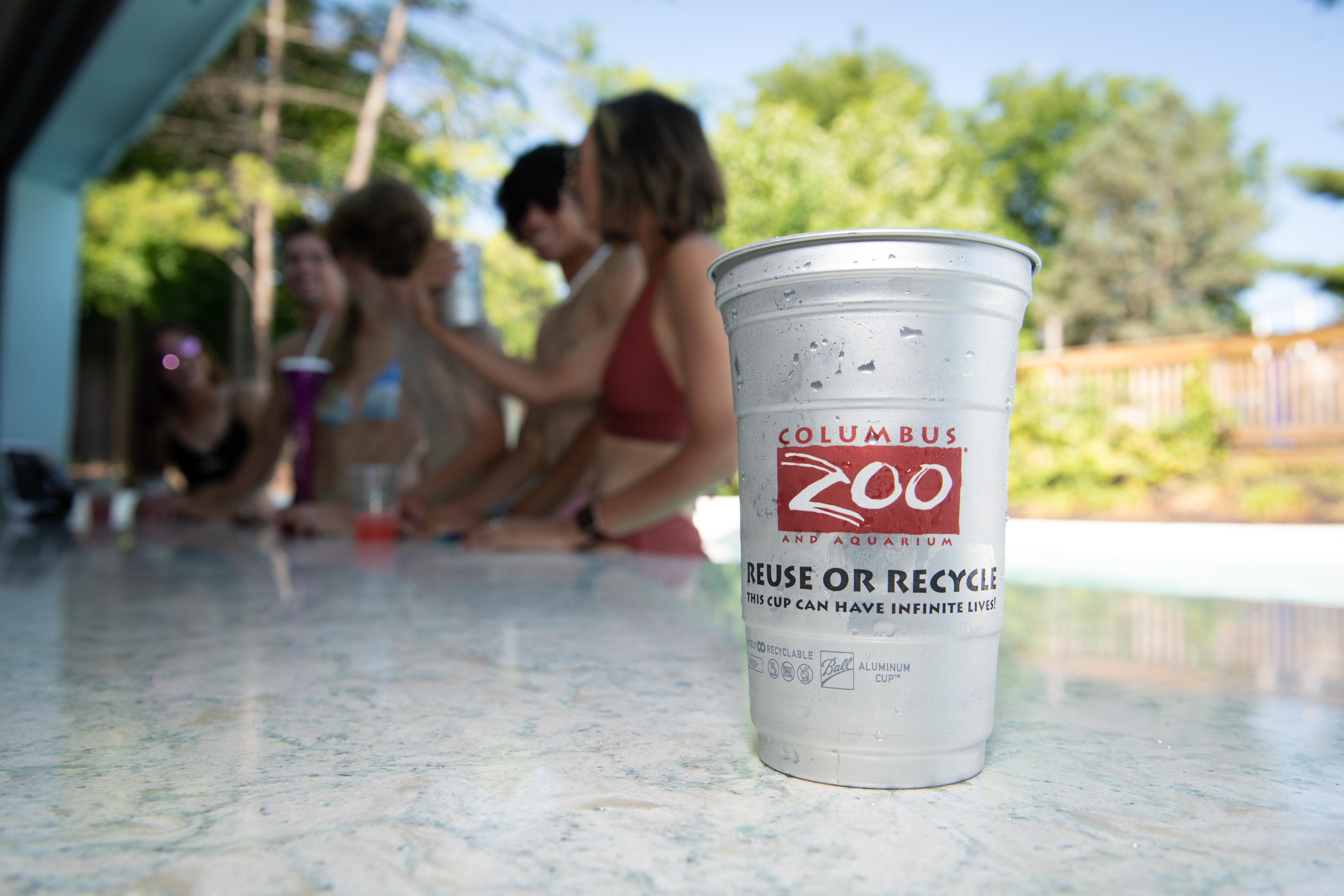
Local Flavor: Growing for the Animals
Our horticulture team cultivates fresh, locally grown browse for animals year-round. This not only provides nutritious food but also supports plant conservation efforts. It’s a win-win for animals and the environment.
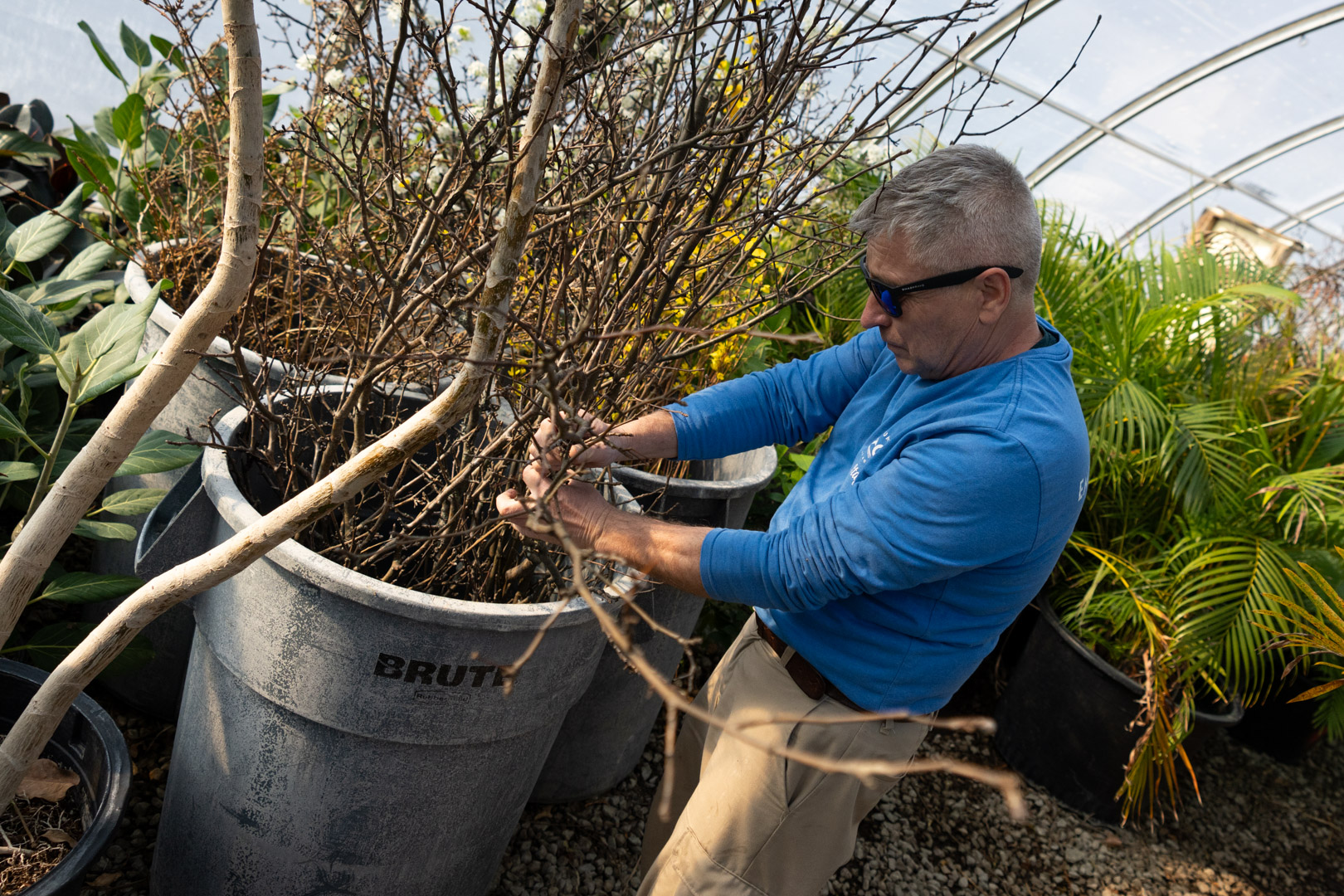
Learn More about Columbus Zoo Browse
Breeding Sustainability Underwater
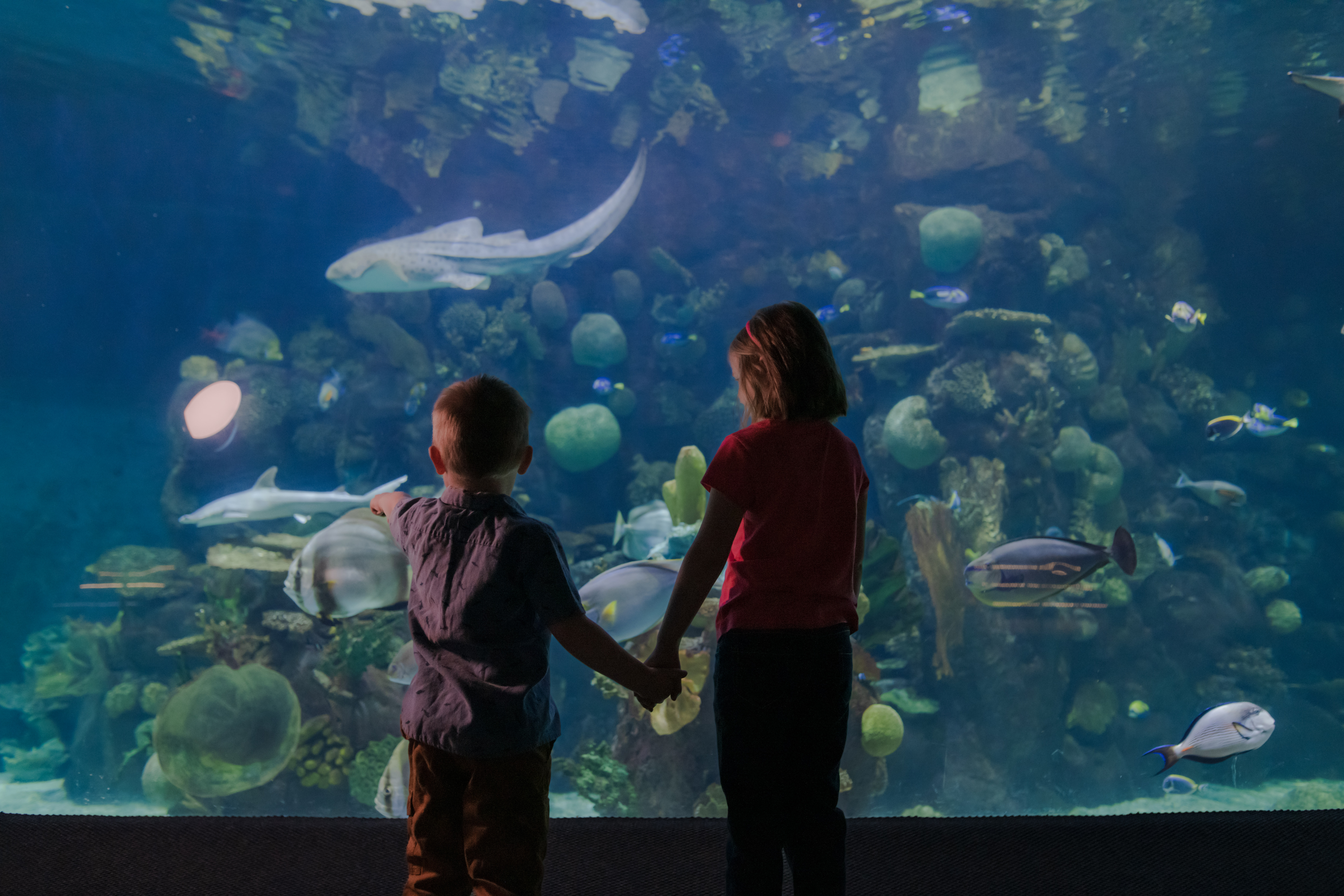
Our 100,000-gallon aquarium is part of an international breeding initiative aimed at reducing the collection of fish from the ocean for private hobbyists and public zoos and aquariums. The Zoo has successfully bred 11 species of invertebrates and 13 species of fish, including turbo snails, Batillaria minima and Nassarius vibex snails, rock boring urchins, peppermint shrimp, harlequin shrimp, Berghia nudibranch, dwarf cuttlefish, birds nest coral, blue angelfish, two species of clownfish, two species of cardinal fish, French grunts, and lined seahorses, among others. By successfully breeding 24 species, we’re helping to protect aquatic ecosystems worldwide.
BONUS: Buzzing About Pollinator Habitats
With 11 acres of pollinator habitats planted since 2021, we’re creating spaces for bees and butterflies to thrive. It’s just one more way we’re giving back to Ohio’s natural environment.
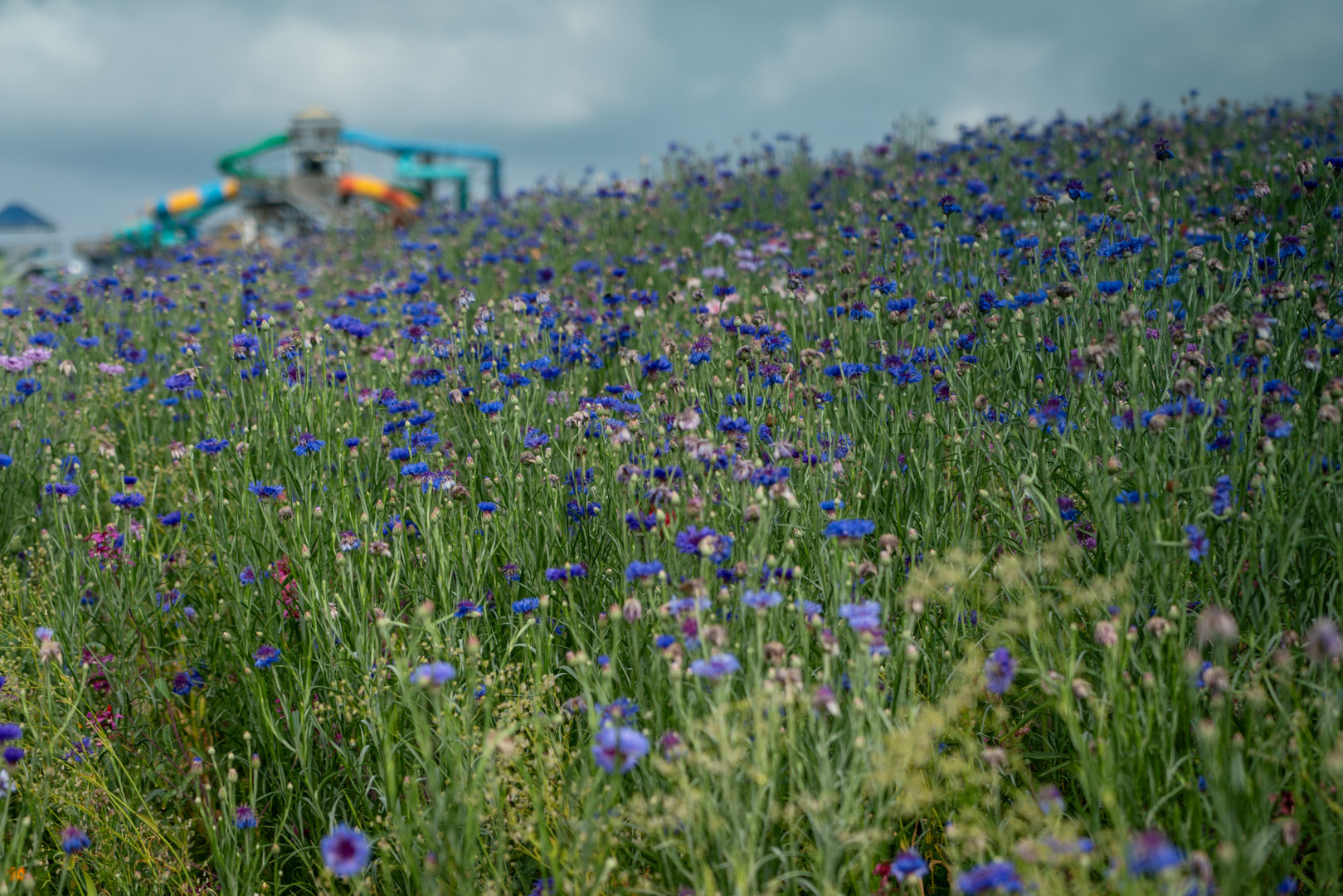
Pollinator Gardens at the Columbus Zoo
Join the Movement for a Sustainable Future
From Wildlights to wildlife habitats, the Columbus Zoo and Aquarium is proud to be a leader in sustainability. But we can’t do it alone. Together, as a community, we can protect the environment for future generations.
Let’s make a difference—starting right here in Central Ohio.
Sustainability at the Columbus Zoo

